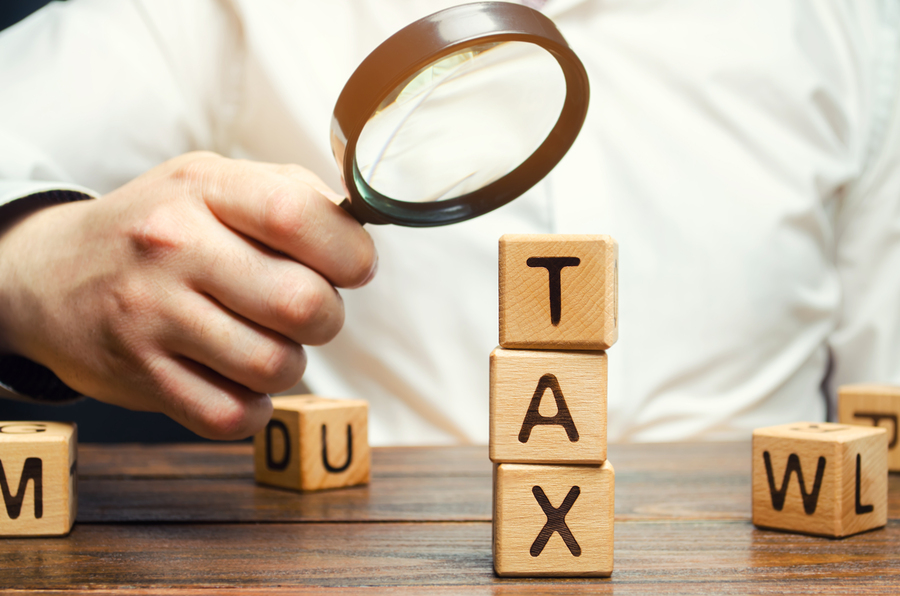
Published: November 1st, 2019 in Accounting
For businesses starting out as limited companies, working out and paying tax can seem overwhelming. There are a wide variety of taxes and other payments you are expected to make, and if you miss one, or work one out incorrectly, you put yourself at risk of paying penalties and potentially becoming the focus of an official investigation.
With this in mind, here are some of the main taxes that small businesses and limited companies are required to pay, as well as some advice regarding how and when to pay them.
Corporation Tax
On registering as a limited company you automatically become eligible to pay Corporation Tax. This means that every year your business must fill out and file a Corporation Tax return. Corporation Tax is currently charged at 19% for all limited companies, regardless of their size.
If your company does not come under IR35, then you will most likely pay yourself a low salary which will be combined with dividends to create your living wage, an amount which can vary depending on your financial situation and preferences. Dividends are payable from the retained profits, after tax, of the company.
With regards to dividends, make sure that your accounts show that you have profits before you issue them to yourself as dividends, otherwise HMRC may see this money as a disguised salary which you are paying yourself, and then ask you to pay Income Tax and National Insurance Contributions on them.
For businesses who do come under IR35, your salary and expenses are deducted from your gross profit, meaning that there will be less net profit from which corporation tax can be charged. Working out the optimum level of salary and dividends can be complicated if you have not made much profit in a year, so taking advice on this is usually a good idea, especially since the penalties for getting it wrong can be very significant.
How Do I Pay?
Your company will fill out a Corporation Tax return once a year, with the deadline for paying your bill being 9 months and 1 day from your company’s regular ‘due day’, which is the anniversary of your company’s incorporation. Another deadline for your company tax return is 12 months after the end of an accounting period. You may have two deadlines in the first year after you set up your company, and it is worth checking this as early as you can to avoid missing a deadline.
To pay, you need to register on the gov.uk website and then go to ‘Pay your Corporation Tax bill’, where you will be redirected to the Government Gateway, and walked through the payment process.
Value Added Tax (VAT)
If your business is involved in selling products or services, then you will need to charge VAT on top of your own prices once you register as a limited company. You will then keep a note of this in your own accounts and pay any VAT due to HMRC in regular VAT returns. Becoming VAT registered and charging VAT is obligatory if your sales exceed, or are likely to exceed £85,000 per annum. If your sales are not at this level, you do not have to register and charge for VAT, but there are certain circumstances where this might actually be to your advantage. Get in touch with us if you feel you may fall into this category and we can explain the pros and cons of going ahead and registering.
For most companies, VAT is charged at 20%, which is the standard rate of VAT. Standard rate VAT returns are sent to HMRC on a quarterly basis. However, if you are a small business, you might be able to apply for the Flat Rate VAT scheme, in which you can charge the regular 20% on your invoices, but then pay HMRC at a lower rate. The amount of this is dependent on your profession, but currently stands at 16.5% for those defined as limited cost traders. For the first year that your business is registered for flat rate VAT there is a further discount of 1%.
There are a few more VAT schemes in addition to the standard and flat rate scheme but these tend to be only applicable in certain circumstances and should only be applied for after consultation with a taxation professional.
How Do I Pay?
VAT payments need to be made electronically and by the deadline, which for both submitting your return and making a payment are 1 month and 7 days after the end of your accounting period.
All VAT registered companies should now be using Make Tax Digital software that includes the ability to send your VAT returns to HMRC automatically. Using this software relieves a lot of headaches and should hopefully make late VAT returns, and their accompanying penalties and fines, a thing of the past.
Your VAT returns, past and present can be found on the VAT page of your online government account. You will also find the deadline for your latest return displayed here, to make it easier for you to ensure that you pay it on time.
Employers’ PAYE
Most single person businesses employ someone, namely the boss, as putting yourself on the payroll is usually one part of a dual pronged approach for paying yourself in the most tax efficient way possible. With the other “prong” being paying yourself a part of your income via dividends.
PAYE deductions and payments are calculated from the wages paid to your staff as a whole, and since PAYE and payroll are so closely associated the vast majority of businesses will work out both at the same time by using payroll software, which can either be online or offline based. Some of the most common PAYE deductions are
- Employee Income Tax deductions
- National Insurance Contributions class 1 and 1B (your class 1A contributions are paid separately
- Construction Industry Scheme deductions
- Apprenticeship Levy payments
- Student loan repayments
How Do I Pay?
Your employer’s PAYE bill must be paid by the 22nd of the next tax month for those who pay monthly, and the 22nd of the next quarter if you pay quarterly. You can choose how you prefer to pay and get set up for PAYE on the gov.uk site, using their PAYE and payroll hub. This area also provides answers to questions, and can keep you up to date on when your next payment is due.
Employer’s National Insurance Contributions (NICs)
You will need to pay NICs, based on the gross amount of your salary, at a rate of 13.8% on any earnings over £162 per week. Your Employer’s NIC bill is likely to be higher if your contract comes under IR35, as your salary will be higher. If your contract does not come under IR35, you can pay less NIC by paying yourself a lower salary and higher dividends. National Insurance Contributions are not payable on company dividends.
How Do I Pay?
The deadlines for NICs depend on your company structure, but for limited companies these are paid with your PAYE arrangements, as detailed above.
Business Rates
For companies who have a commercial address (i.e., you are using a non-domestic property, or part of one, to operate your business), you will probably need to pay business rates.
Business rates are calculated based on a property’s ‘rateable value’, which is an estimate of the property’s value as conducted by the Valuation Office Agency (VOA). The last revaluation came into effect on 1 April 2017, for values made as of 1 April 2015. The bill will be worked out by your local council and then sent to you in February or March each year, for the forthcoming tax year. This bill will also include details on how and when you need to pay.
For limited companies, the types of tax and other payments that they need to pay will vary according to the business. By the same token, there are tax reliefs and benefits available, which different businesses may claim under various circumstances. Some of these reliefs are set by the government whereas some are set by your local council.
Get in touch
Business taxation is a subject so huge that we can only give you a high level overview in this article. Luckily what the average business person needs to know is not too overwhelming as most of them delegate the day to day operation to their accountants, as along with the more difficult end of year tasks, such as completing and submitting your official returns.
If you want to know more about anything taxation related then why not talk to our expert advisors on 0800 470 4820 or via email [email protected].


